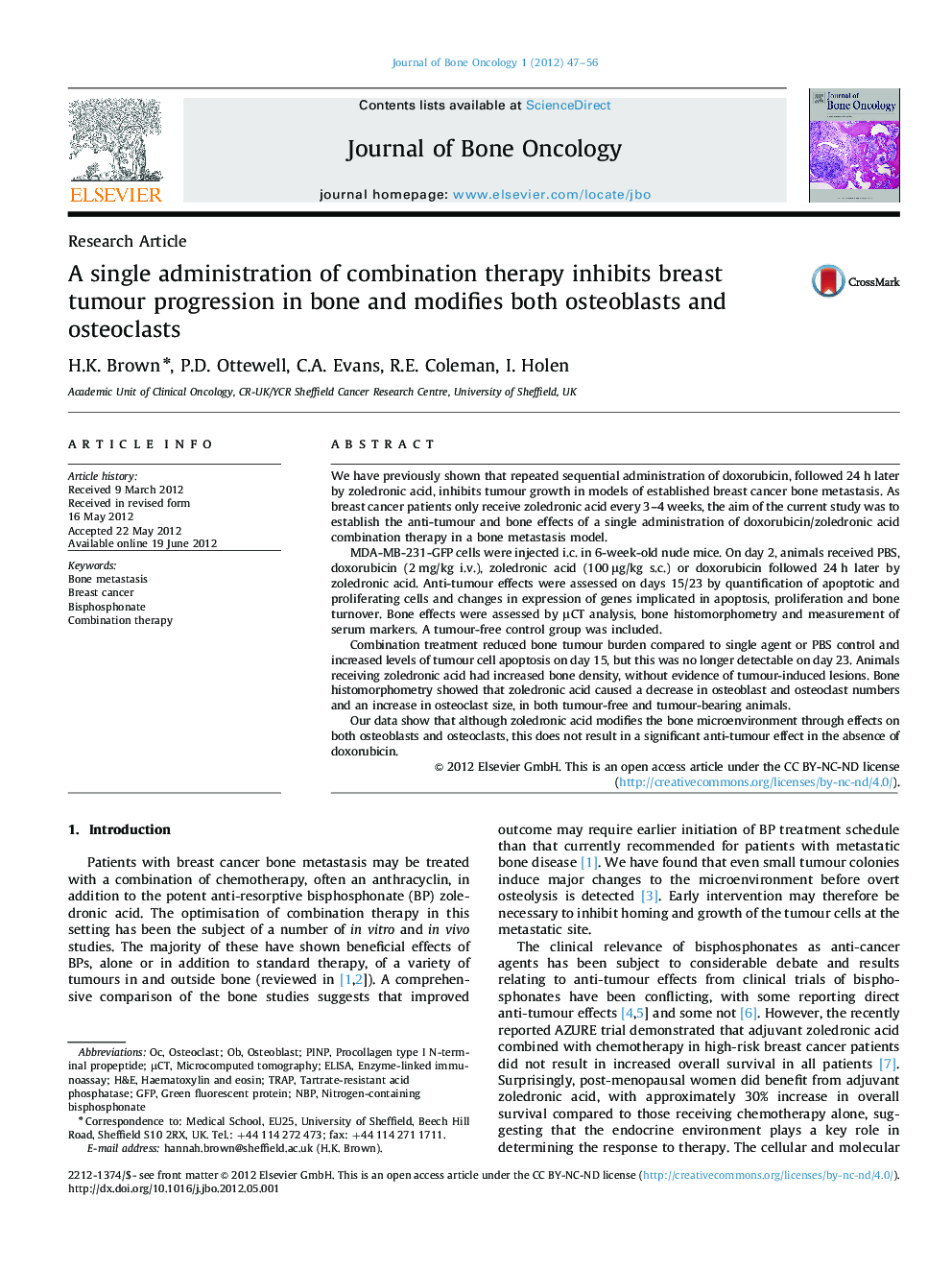| Article ID | Journal | Published Year | Pages | File Type |
|---|---|---|---|---|
| 2136158 | Journal of Bone Oncology | 2012 | 10 Pages |
We have previously shown that repeated sequential administration of doxorubicin, followed 24 h later by zoledronic acid, inhibits tumour growth in models of established breast cancer bone metastasis. As breast cancer patients only receive zoledronic acid every 3–4 weeks, the aim of the current study was to establish the anti-tumour and bone effects of a single administration of doxorubicin/zoledronic acid combination therapy in a bone metastasis model.MDA-MB-231-GFP cells were injected i.c. in 6-week-old nude mice. On day 2, animals received PBS, doxorubicin (2 mg/kg i.v.), zoledronic acid (100 μg/kg s.c.) or doxorubicin followed 24 h later by zoledronic acid. Anti-tumour effects were assessed on days 15/23 by quantification of apoptotic and proliferating cells and changes in expression of genes implicated in apoptosis, proliferation and bone turnover. Bone effects were assessed by μCT analysis, bone histomorphometry and measurement of serum markers. A tumour-free control group was included.Combination treatment reduced bone tumour burden compared to single agent or PBS control and increased levels of tumour cell apoptosis on day 15, but this was no longer detectable on day 23. Animals receiving zoledronic acid had increased bone density, without evidence of tumour-induced lesions. Bone histomorphometry showed that zoledronic acid caused a decrease in osteoblast and osteoclast numbers and an increase in osteoclast size,
